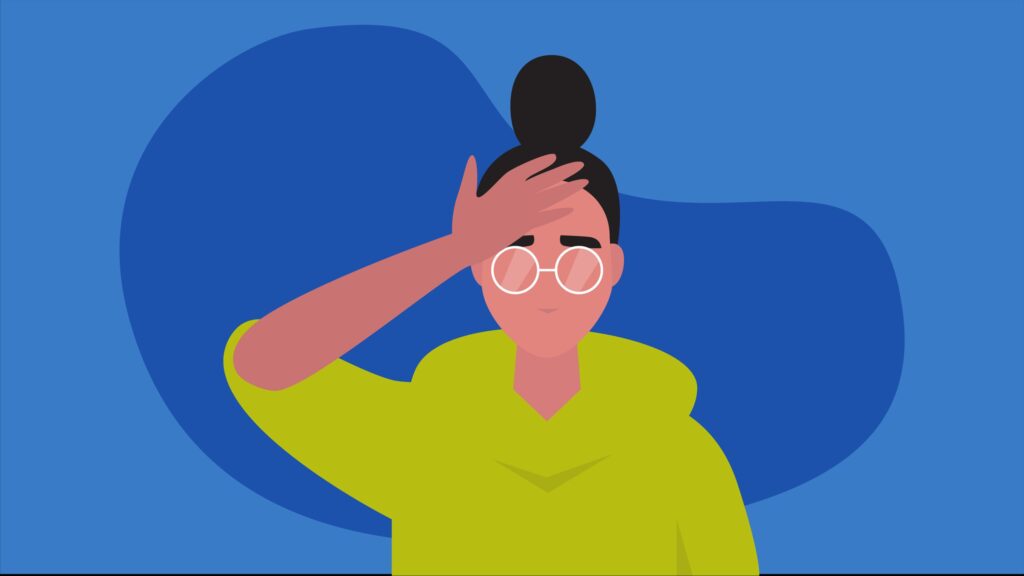Migraines are neurological disorders that cause more than a simply excruciating experience. It usually happens on one side of the head. The ache is extremely grave and intense making you unable to carry out regular chores.
These attacks can also sometimes last for a long time, for many hours and sometimes for more than one day. As a result of this, the patient may also suffer irritation from extreme brightness and noise. The patient may also suffer dizziness, and discomfort and may also feel disoriented. Food and lifestyle play a very crucial role for someone who suffers from migraine. There are certain food items that can act as a trigger for migraine. Similarly, several other factors such as extreme brightness, loud noise, drinks, incomplete sleep, disturbed mind, tension, and certain other medicines are a few examples of triggers that cause a migraine attack.
Migraine is diagnosed using a patient’s medical history, present symptoms, and evaluation of additional possible causes. Both migraine prevention and therapy can help to lessen their frequency. The right migraine medication, a thoughtful approach, and dietary adjustments ought to help.
Various types of migraines are as follows
As we know, the disease is caused by an abnormal neurological function that disturbs the normal flow of blood, nerve transmission, and neurochemicals. Let us have a look at the distinguished categories of migraines for which a general practitioner may or may not provide a prescription.
Prolonged Ache
This kind of recurring or chronic pain is very distressing. In most cases, it takes place due to the ill effects of some other prescribed medicines. Chronic issues like this can last up to longer weeks and sometimes also months.
Extreme Pain
If we compare, then this situation is quite minor as compared to migraine for a longer duration. The patient experiences intense pain for a certain period of time and then subsides.
Migraine During Periodical Time

Approximately 50-60% of women experience menstrual migraines during ovulation and before and during the time of their menstruation. This kind of headache during such a sensitive time gives a lot of uneasiness. Adequate rest is essential during such a time.
Hormones
The illness, which is called menstrual migraine or an exogenous estrogen withdrawal headache, is linked to female hormones, typically estrogen. Women would typically experience migraine onset of their menstruation, when pregnant, with hormone medication adverse effects, or because of birth control medicines.
Migraine Without Headache
This illness is quiet and visual without typical pain. Typically this is seen in individuals post-age 40—also known as Acephalgic migraine can cause a wide range of complex symptoms, including blurred vision, numbness, difficulty speaking, immobility, etc.
Preventive Measures For Migraine
Several choices are available to you if faced with the issue of migraine and may help you avoid an attack. For you, some might be more effective than others:
- Observe what causes your migraine and try to avoid the foods, fragrances, and circumstances that are causing the attack.
- Drink enough water and consume fruits and vegetables that have high water content. Remain hydrated. Headaches and vertigo are both symptoms of dehydration.
- Eating on time and eating right are equally essential. Try to refrain from skipping meals and maintain a balanced diet.
- A good night’s sleep has always been considered one of the best remedies for headaches and migraines. Aim for sound sleep. Restful sleep is crucial for overall wellness.
- No smoking. Smoking is injurious to health and can trigger severe migraines resulting in vomiting, nausea, and discomfort.
- Stress management must be a top priority. Make reducing your stress a top priority. Spend some time and effort learning the skill of unwinding. Everyday physical activity has shown results in reduced anxiety levels.
Doses And Types

Medication for migraines aims at reducing symptoms and guarding against further occurrences. There are numerous drugs capable of serving solutions for migraines. There are two major groups of medications used to treat migraines:
Medication That Reduces Pain
These medications, also referred to as acute or temporary treatment, are administered during migraine occurrence and are intended to relieve symptoms. These medications include:
Certain drugs, such as ibuprofen or aspirin, generally are consumed in case of minor bouts of migraine with no dizziness or vomiting.
In most cases, those who experience nerve pain as a symptom of their migraine episodes turn to drugs like sumatriptan, eletriptan, and rizatriptan as the immediate mode of treatment.
Medicines like NSAIDs such as aspirin are frequently combined with drugs like metoclopramide, chlorpromazine, and prochlorperazine to assist reduce nausea.
Migranal and Ergomar are two rarely administered drugs commonly given to patients who fail to respond to triptans or analgesics.
Precautionary Treatment
Several kinds of medications are taken on an everyday basis, to lower the intensity and regularity of migraines. These medicines help prevent frequent migraine triggers. This kind of treatment includes:
Medications like antihypertensives are used to treat high blood pressure and migraines. Examples of hypertension medications used to prevent migraines include beta-blockers and candesartan, which block the angiotensin receptor.
Some anti-seizure drugs may potentially be able to stop the migraine outbreak.
Amitriptyline and venlafaxine are two antidepressants that may also be able to stop migraine attacks.
Botox Injections every 3 months are given to the neck and head as a part of treatment in some cases.
Treatments using the calcitonin gene-related peptide are medications that function to stop the onset of a migraine attack and are given through injection.

Conclusion
Consult your doctor as soon as possible if your headaches are interfering with your everyday activities and you are unsure whether or not it is a migraine. While migraine might sometimes feel incapacitating, several therapies are available. Headaches may also be an indication of other problems as well, so be mindful and observant. A pregnant lady must not consume any dosage without consulting a doctor.
There are numerous medications available to manage migraine pain. To prevent rebound headaches, exercise caution while taking medications in excess. If the discomfort is persistent, Consult the doctor before starting any preventive medicine.

